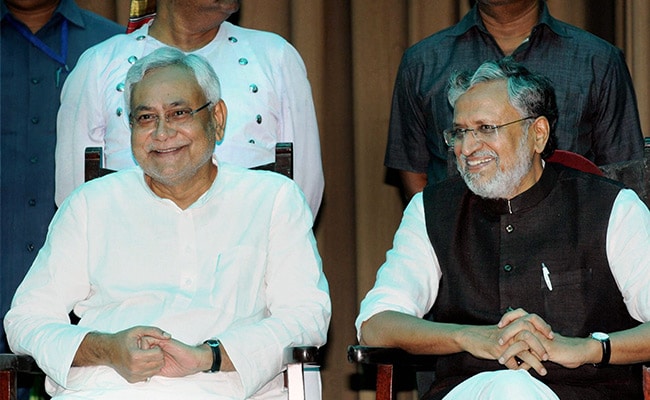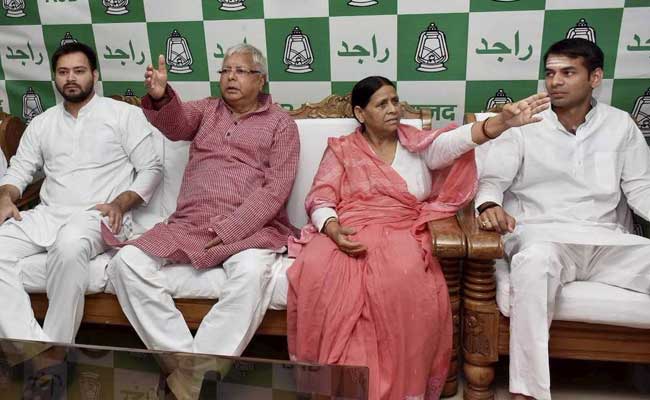
This will be Bihar Chief Minister Nitish Kumar's first trip to Delhi since he joined hands with the BJP
Quick Take
Summary is AI generated, newsroom reviewed.
Bihar Chief Minister to attend Venkaiah Naidu's oath-taking tomorrow
First trip to Delhi by Nitish Kumar after reviving BJP alliance
Chief Minister asks for meeting with PM tomorrow: sources
Mr Naidu, former union minister, was the BJP's candidate for Vice President. The Bihar Chief Minister's party, however, voted for his opponent, Gopalkrishna Gandhi, who was the joint nominee of 18 opposition parties. When Mr Gandhi was named as the unanimous choice of the anti-BJP league, Mr Kumar was part of the opposition; his status changed just days later.

Nitish Kumar (left) has revived his alliance with the BJP and made Sushil Modi his deputy.
It's hardly a blind date. Till 2013, Mr Kumar was a member of the BJP's national coalition; he abandoned it after the party chose then Chief Minister Narendra Modi as its prime ministerial candidate. Mr Kumar's move turned out to be huge misstep. The BJP, riding the Modi Wave, won not just the national election but a series of states. By the time the PM announced his shock banning of high-denomination notes in November, Mr Kumar was waving a white flag. He alone among opposition leaders supported PM Modi, vouchsafing for the reform as a key weapon in the war against corruption. He had done his homework - bureaucrats deputed by him to criss-cross Bihar had informally polled some of the poorest parts of the state; they found that in contrast to what opposition leaders were claiming, farmers and others were willing to accept demonetization and the ensuing cash crunch because they trusted the PM when he said the short-term pain would be succeeded by long-term gain.

Nitish Kumar said he pulled out of the Grand Alliance because of corruption charges against Lalu Yadav and his family.
Lalu Yadav has correctly stated that Mr Kumar's swapping of partners was no spontaneous rearrangement. In June, the Chief Minister said he would back the BJP's choice for President and not the anti-BJP's nominee. He said he was coerced to vote against the opposition because its main anchor, the Congress, rambled in organising one united candidate.
Last month, Mr Kumar flew down from Patna to attend Ram Nath Kovind's induction as President of India.
He is now on the verge of another split - with Sharad Yadav, who has served as co-runner of their party, and who is furious with Mr Kumar about the big move back to the BJP.
Track Latest News Live on NDTV.com and get news updates from India and around the world

